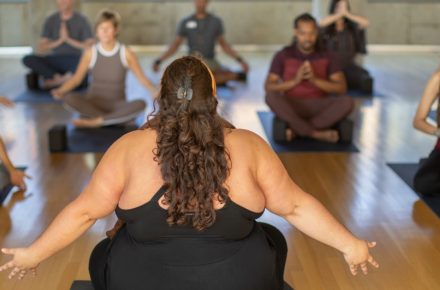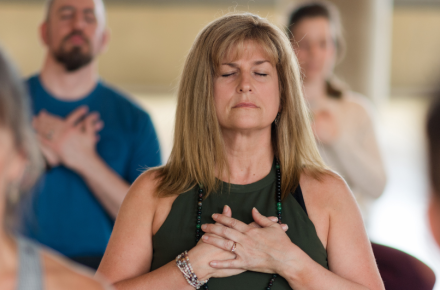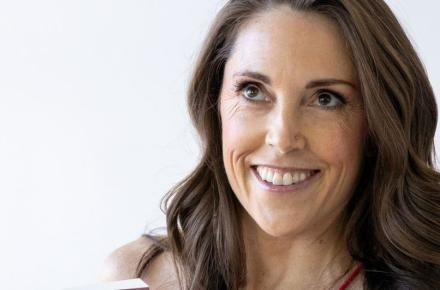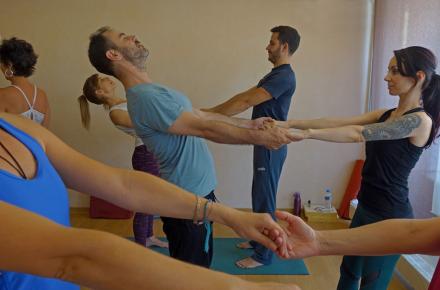Positive Psychology Coaching: How to Ask Great Questions
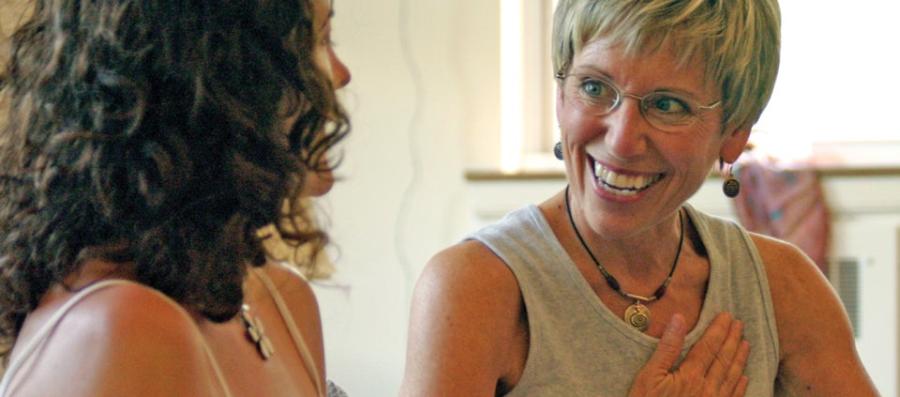
I love being a Positive Psychology coach. Having spent my first career as a business executive, some days I can hardly believe that now I get to earn my living by helping people clarify and pursue their goals for positive change. Some of my favorite coaching moments occur when I ask a question that elicits an “aha” reaction, that helps a client think of herself in a new way, or see a possibility he hadn’t realized was there, or find the courage to begin on a path toward a personally meaningful goal.
Asking a question that helps a client to make progress is one of things I love about being a coach. But I think that, for new coaches, it can also be a little paralyzing. It’s easy to think that, for each situation, there is a “right” question to ask. And if you think there’s a “right” question, it’s natural to fear that you won’t be able to come up with it when you need to.
Focus More on Listening than Asking
When I teach courses in Positive Psychology Coaching, I’m often asked how I know what to ask—in essence, how I come up with the “right” question at the “right” time. And my most honest answer is that, when I’m coaching at my best, I’m not focusing at all on thinking of questions to ask. I’m focusing on listening to what my client is saying.
Our coaching clients come to us because they want help moving from where they are to where they want to be. It takes careful listening to understand those two places. So my advice is this: Listen to your clients with everything you’ve got. And then ask questions that respect where they are and help point them toward where they want to go.
Get Specific
One of the most helpful things we can do as coaches is to help our clients get more specific—about their strengths, resources, goals, values, and the steps they will take to begin to create the kinds of change they seek. For example:
- Instead of just asking clients to describe how they use a given strength, ask for a concrete story about a specific time they used it. The insights and self-efficacy that can come from reflecting on a specific experience can be far more powerful than a general description.
- When clients are making action plans for the week, ask for concrete details about when they will take each step, and where, and what needs to happen to make it possible, and what might get in the way, and how they’ll respond if it does. These specific questions can help turn vague intentions into specific—and empowering—plans.
One of my most powerful experiences as a coaching teacher happened when a student used this very approach with me. During an exercise in class in which my students were practicing their coaching skills on me, I talked about how I’d recently gotten back into running regularly and was feeling great about it. I expressed a fear that I would eventually slack off and lose the great sense of well-being that running contributes to my life. This had happened several times before, and I wanted this time to be different. I mentioned that I thought being immersed in Positive Psychology tools and concepts through my work would help sustain my commitment this time.
Having listened very carefully to my story and my concerns, a student named Eva asked me a galvanizing question: “What specific Positive Psychology tools and concepts will you rely on if your commitment starts to waver?”
What was so powerful to me about that question was that it encouraged me to move beyond a vague hope that Positive Psychology would help me when I needed it. I realized that I could do more than just hope—I could take action. So I sat down and spent some time thinking about what might get in my way in the future and what specific concepts and tools I would turn to if I felt my commitment flagging. (Brief summary of a lot of journaling: Growth mindset, self-compassion, and setting concrete goals are all big parts of my plan.)
Eva’s question was simple. She asked me to be more specific about what I was saying I wanted to do. It was simple, and it was powerful, because it came from really listening to what I was saying, and it prompted me to move from general to specific in a way that has been of great value to me.
Ask for Positive Examples
Appreciative Inquiry is a process of exploring what is working and finding ways to build on it. For example, if a client is searching for a new career, we can ask about their best jobs and their proudest accomplishments. If a client is afraid of failure, we can ask about a time they tried something despite the chance that they might fail, and what they learned from the experience. Reflecting on these experiences can lead to new insights, greater self-efficacy, and previously unseen ways to get unstuck and begin to move forward.
I recently worked with a couple who run a small business together. They came for coaching because, while their business was growing, their marriage was strained. They love and respect each other, but their daily interactions had become mostly negative, and they were worried about their future together.
The research is clear that all relationships have conflict, and that couples in healthy relationships are able cope effectively with that conflict in part because it occurs in the context of mostly positive interactions. In short, couples need to make sure that they are having a lot more positive interactions than negative ones, so they have a strong base from which to deal constructively with the inevitable conflicts.
So after listening to my clients tell me about their struggle, I asked questions designed to help them focus on what they love and value about each other. For example: What do you love about your spouse? What do you admire? What does your spouse bring to the business? What do you like about working together?
After they shared some of their positive feelings about each other, I asked them to each write down five ways they might express those positive feelings in the coming week—and to commit to doing so. We kept our focus here for a few weeks; then, once they began to develop a habit of noticing and expressing what they appreciated about each other, we were able to address some of their conflict areas in healthy ways.
Find out about Lynda Wallace's program on Positive Psychology Coaching at Kripalu.
This article is adapted from Lynda Wallace's writing for the Wholebeing Institute blog.






